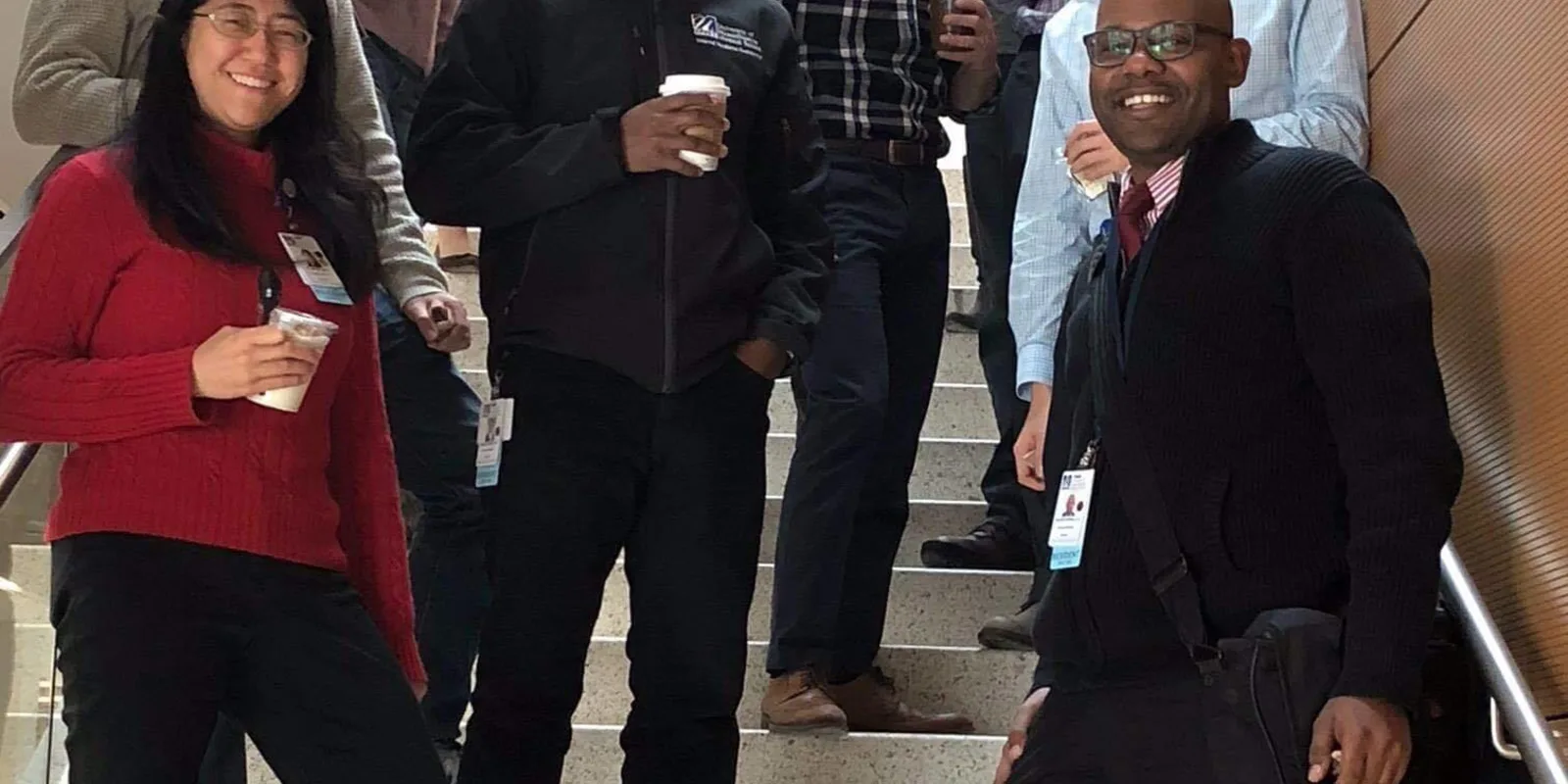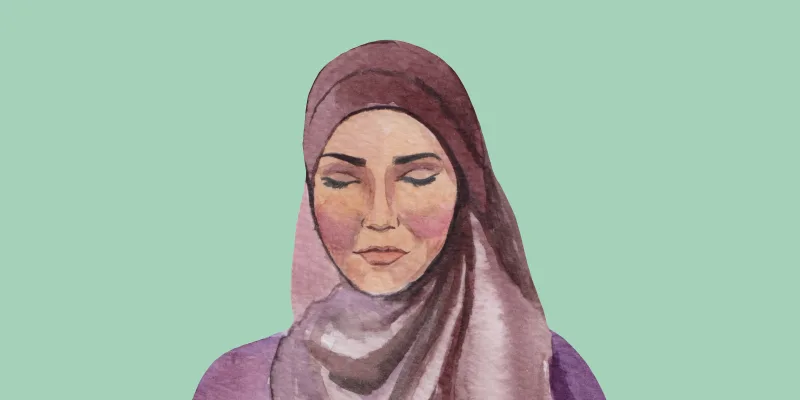
Hisham (far left) with his resident group.
Apps: Smartphones serve as an on-the-go encyclopedia at a clinician's fingertips.
Almonds: A nutritious, easy-to-carry snack for long hospital shifts.
Arabic: Knowing another language besides English is always beneficial in patient care.
Hisham Al Kukhun has been braving New England winters for the past few years as he completes his Internal Medicine residency at UMass Memorial Medical Center in Worcester, Massachusetts. The climate is certainly different than that of his home country, Jordan, and so are the patients he encounters. Hisham has treated people in refugee camps and now tends to the wars inside bodies exacerbated by chronic diseases. The empathy he meets all of his patients and their families with, however, does not change between regions and borders.
Before even stepping foot into UMass Memorial for his shifts, Hisham sets a positive intention for his practice: “I have the people, support, tools, and knowledge to make the best of my situation. I am able and willing to help!” There is a spirituality to practicing medicine, not unlike practicing yoga or meditation. Hisham understands the importance of trying to bring his best and fullest self to his patients and colleagues.
A typical day of work for Hisham is a balance between patient rounds, family meetings, and learning opportunities in the forms of team conferences and lectures. He stores a stash of almonds in his locker to keep his energy up throughout the day. Packed with power nutrients and easy to keep in scrub or coat pockets, they are ideal for busy clinicians. Knowing the lay of the land is key for Hisham to do his job well. Besides the repository of clinical information in his brain, he stores passcodes, phone extensions, names of other clinical and non-clinical colleagues, and who to call for this procedure and that procedure. He knows it takes a village to do medicine right.
There are certainly more tools at the ready in a public hospital than in a war zone. Hisham’s stethoscope has heard the diminished lung sounds of patients living with COPD and the extra heart sounds in CHF. Tried-and-true mobile apps like MDCalc and UpToDate guide Hisham’s clinical judgement, such as in the moment he needs to ascertain the probability his patient with atrial fibrillation will stroke. Another valuable and irreplaceable tool he possesses is his native fluency in Arabic. “Arabic-speaking patients value having me as their doctor. They elaborate more on their disease when speaking in their native tongue,” Hisham notes.
Hisham often thinks about his role of giving bad or difficult news to a patient or their loved one. There’s no easy way to do it and one never gets better at it. When done with genuineness, grace, and empathy, patients and their families can begin to accept reality and move forward. Internal Medicine is dealing with the chronicity of diseases that will never go away and that a patient must learn to live with and manage. Hisham may meet someone in the middle of an illness journey or at the very beginning, like in handing out a first-time cancer diagnosis. He believes doctors can learn more about how to improve on carrying out this act by watching recorded conversations, similar to clinical simulations that are part of medical training.
When the hours blur, energy drains, and a boost of encouragement is needed, Hisham looks back at emails and messages of praise from colleagues and mentors. Going out into the hospital courtyard is also helpful for him. He loves sunlight and appreciates the clarity that comes with leaving hospital walls from time to time. “Fresh air, the smell of rain, these are the most immediate refreshers for me, besides coffee, of course.” Hisham is a reflective doctor - he can be found laying in the grass on break contemplating the clinical encounters of the day. “Patients invite clinicians to be a part of their world, wishes, and plans. It’s a privilege to care for people and be part of their lives and inform the decision-making process. I am just an advisor and they give me the space to advise.”







